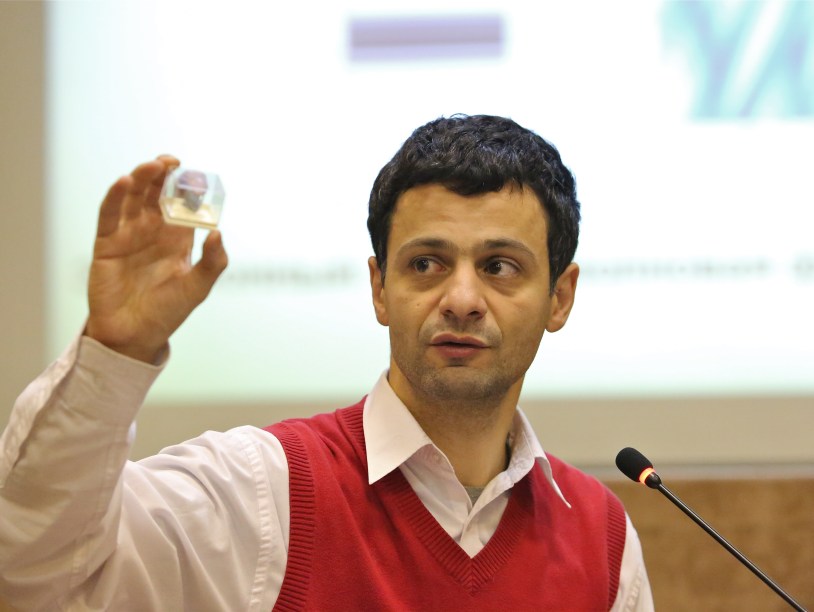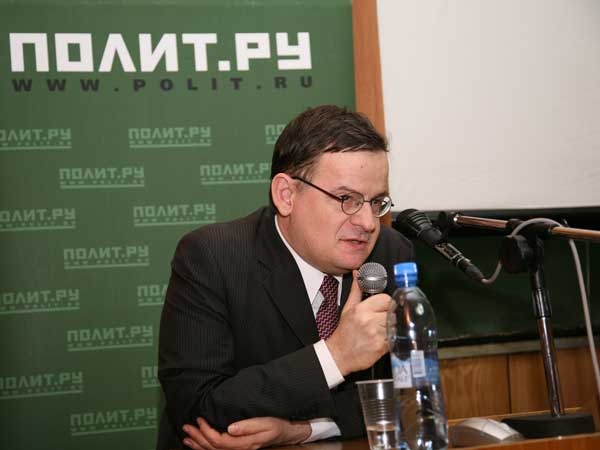One of the four Britain's diplomats being expelled by Russia is a top trade official responsible for liaising with Russian government officials and British investors re Sakhalin-2 project. Even if it’s a coincidence, it is a sign; Moscow never forgets those who queer pitch of its companies and gives bonuses to those who help.
“Reports that the senior embassy official is responsible for liaising with Russian government officials and British investors indicate that Andrew Levi, counsellor for economic and scientific affairs, is one of the four British Embassy officials who have been told to leave. Multiple sources close to Levi have confirmed that he is one of the four and is due to leave the country Sunday,” reports the Moscow Times.
Earlier Russia and the Great Britain stated that in accordance with international practice they would not announce names and posts of deportee diplomats.
As Britain that is to expel four officials of the Russian diplomatic mission, Russia intends to expel four Britain’s envoys. They are to leave Russia on Sunday, July 29. Now Russia should reveal a name of one of its diplomats to observe parity.
It seems that both Russia and Britain have already confused who has been the conflict's initiator; at the moment officials and representatives of public organizations are casting upon each other senseless reproaches like “and you’re lynching blacks”.
Almost all officials who have the least attitude to the investigation of murder of Litvinenko commented on the case. The last time the Russian president Vladimir Putin told pro-Kremlin young activists vividly and even with animation about Britain’s policy and non-extradition of citizens.
If forget about laws of diplomacy it is pure hysterics without any implication. First Tony Blair calls Britain’s business to leave Russia, then Alexander Shokhin threatens the London with delisting of Russian companies. Long exchange of notes, which’s contents became the common property and information ground for leading mass-media.
Besides the name of the diplomat, his official responsibilities are also very important. According to the Moscow Times, Levi was occupied with Russian, Britain cooperation in the Sakhalin-2 project. Thus the case becomes not merely political or criminal.
Moscow seems to hint that it did not like the Britan’s trade official, didn’t like just because of the Sakhalin-2. On the contrary Moscow (and Vladimir Putin personally) likes Gerhard Schrцder, so that after his resignation he became one of the main figures in the project of the North European Gas Pipeline construction.
Both case are symptomatic for Gazprom. Sakhalin-2 is however more important for Russia. It should be reminded that on December 21, 2006 in Moscow a Protocol between shareholders of Sakhalin Energy was signed. In accordance with the Protocol terms, Gazprom purchases a 50 per cent stake plus 1 share in Sakhalin Energy for US$ 7.45 bln; and becomes the main shareholder. Royal Dutch Shell plc lost the control under the project and became a minority shareholder.
The final purchase agreement was signed on April, 2007.
Gazprom declared about its intense to participate in the project Sakhalin-2 yet in 2003, but negotiations failed, when the real amount of the development expenses became clear.
The Russian party was indignant, in autumn 2006 it used “ecological truncheon”. Nature conservation organizations instituted inspections of the Shell’s activity. Oleg Mitvol, deputy head of the Federal Service for the Inspection of Natural Resources Use, reported that multitude environmental violations of ecological standards had been revealed. Russian Ministry for Natural Resources assessed a hefty fine on the consortium and even threatened to revoke a license.
Moscow was facing harsh criticism of Britain’s press; in response Russian mass media assailed London (all was just as in the Lugovoi’s case). After continuous consultations and strenuous negotiations Shell ceded control of Sakhalin-2 to Gazprom.
The conflict around Sakhalin-2 threatened to grow into a political one. Japanese officials, including the present premier minister Shinzo Abe were anxious for the situation over the project; the Great Britain also made similar statements. After the conclusion of the agreement the conflict seemed to be settled. But in November Litvinenko was poisoned in London. The Great Britain was worried with a murder with radioactive substance in the very centre of the capital. Moscow was worried with charges of the murder.
The tension over Sakhalin-2 was for some time on the black burner but wasn’t forgotten. First Kremlin didn’t let Russian businessmen and officials at the London Economic Forum, then the president of the Russian Union of Industrialists and Entrepreneurs (RSPP) Alexander Shokhin threatened Britan’s companies dealing in Russia with inspections and problems in tendering. Now a Foreign Office negotiator on Sakhalin-2 project is to be expelled.
The diplomatic conflict seems to be not quite diplomatic. The question is, if that all is just rhetoric, situational response to actions of London or a policy that can determine political and economic relationship between two countries for the next few years. It seems that recent conflict over Sakhalin-2 evoke to some extend such a violent reaction of Russian and British elites on Litvinenko’s case. One should hope, that the culmination of the conflict has left already behind and now the echo of Sakhalin is dying away.

